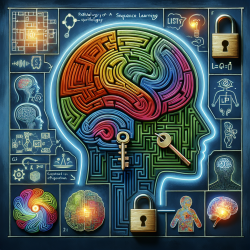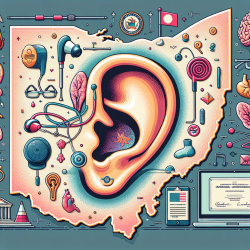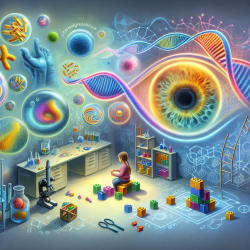Recent research titled "Neural correlates of sequence learning in children with developmental dyslexia" by Hedenius and Persson (2022) provides critical insights into the underlying neural mechanisms that impact children with developmental dyslexia (DD). This study, published in the journal Human Brain Mapping, offers valuable data that can help speech-language pathologists (SLPs) improve therapeutic outcomes for children with DD.
The study investigates the procedural circuit deficit hypothesis (PDH), which suggests that developmental dyslexia may largely be due to alterations in the cortico-basal ganglia procedural memory system, particularly the striatum. The declarative memory system, however, remains intact and may serve a compensatory role. Using Magnetic Resonance Imaging (MRI), the researchers examined the functional and structural brain correlates of sequence-specific procedural learning (SL) in 17 children with DD and 18 typically developing (TD) children.
Key Findings
- Children with DD showed less activation of the striatum during the processing of sequential statistical regularities.
- Striatal alterations predicted the amount of sequence learning in a Serial Reaction Time task, which in turn explained variance in children's reading fluency.
- Reduced hippocampal activation predicted larger sequence learning gains between day 1 and day 2 in the TD group but not in the DD group.
- Caudate nucleus volume predicted the amount of acquired sequence learning at day 2 in the TD group, but not in the DD group.
Implications for Practitioners
Understanding these neural mechanisms can help SLPs develop more targeted interventions for children with DD. Here are some practical steps to consider:
1. Focus on Procedural Learning
Given that procedural learning deficits are central to DD, incorporating activities that target procedural memory can be beneficial. This could include:
- Interactive games that require pattern recognition and sequence processing.
- Repetitive motor activities that engage the striatum.
2. Leverage Compensatory Mechanisms
Since the declarative memory system remains intact in children with DD, SLPs can use strategies that leverage this system to compensate for procedural learning deficits:
- Encourage the use of mnemonic devices to aid in the retention of new information.
- Implement storytelling and narrative-based approaches to reinforce learning.
3. Monitor and Adjust Interventions
Regularly assess the effectiveness of interventions and make data-driven adjustments. Utilize tools like MRI data, if available, to track changes in brain activity and structure.
Encouraging Further Research
While this study provides valuable insights, it also highlights the need for further research into factors that promote learning in children with DD. Practitioners are encouraged to:
- Participate in or support research studies that explore new therapeutic approaches.
- Stay updated with the latest research findings to continually refine their practice.
To read the original research paper, please follow this link: Neural correlates of sequence learning in children with developmental dyslexia.










